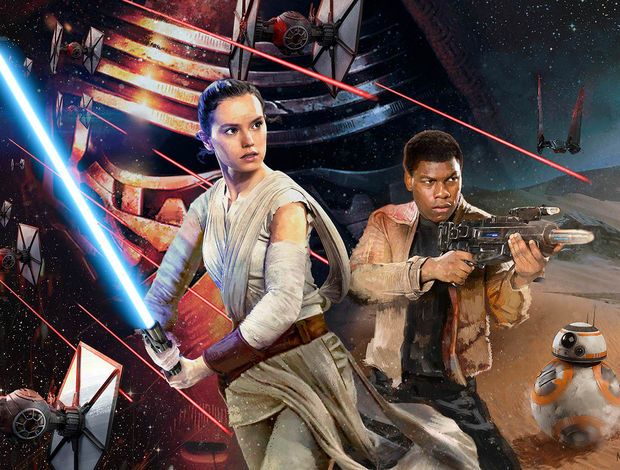Mithrandir said:
Lord Haseo said:
Cassian was interesting and we got to know about his backstory and how he views the Rebellions more questionable actions but I felt there could have been more to him or that his moral ambiguity was made a larger focal point. If we compare him to Rey however he seems underdeveloped in comparison as we know certain things about Rey’s backstory, we have seen a myriad of emotional states from her, we have seen actions that show us what type of person she is […]
We may not agree on character development
We’ve seen Rey intensively cry, laugh, be amused by her abilities, be afraid, run away…all in one movie. You call this character development, I just think it’s an emotional rollercoaster where she reacts generically the way she’s supposed to. And just by the sheer quantity of emotional responses she gives, all I can think of is in an unstable character that doesn’t know or understand anything (but then magically knows how to do everything).
She has more to her than that. She has aspirations outside of the main plot, she has demons, she has a well defined moral compass though I would say Cassian’s is definitely more defined. Rey even has small litlle personality traits like being modest by shrugging off her saving Finn as mere luck
She’s not even forced by the circumstances to leave Jakku, not at least in the same way Luke was by the death of his uncles.
Why do all heroes need to choose to go on their journey?
Cassian, instead, we don’t see him change much in Rogue One (except when he doesn’t shoot Galen Erso, and then joins Jyn to get to Eadu), but just one thing explains all you say it isn’t explained (where he comes from, what are his expectations, what kind of person he is and his emotional state) which is the brief, tense, open, non exhaustive scene inside the ship after the death or Jyn’s dad.
Why is it infinitely better than anything in TFA? Because it’s all based in Diego Luna’s acting, and in a dialogue in which it is more important what is implied and not said: Cassian lost his family in a war situation, war and loss is all he knows, and he is willing to die for a cause basically because he is left with nothing to live for.
Yes, I have completed the meaning of the scene and resignified the character with my interpretation, but that’s the whole point of a well (or at least, better) written movie and true character development , not just having the movie start with a character not liking chocolate and end it with it liking it. That’s just a cheap interpretation of Joseph Campbell’s cheap interpretation of (mainly) medieval cycles.
In the end, Cassian might be a little monolithic but reminds me of Javert in Les Miserables, where only in one point and just in one point, he confesses he comes from the drains of society as well, and suddenly all his actions and feelings including his overly rigid moral compass are explained.
And yes, it’s a reveal moment, only that not so overly emphasized and underlined; just human scale, totally relatable. It explains the guy and his motivations from a human point of view.
Was more actually needed?
Dominic covered this.

